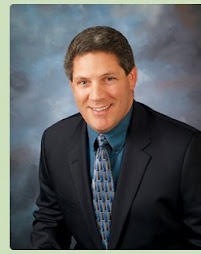Recently, in initial meetings with prospects, there has been a significant increase in questions relating to the price of our planning. This had not occurred previously in my practice. I undertook the job to examine why it was occurring by asking clients, prospects, and referral sources and discovered there is a tremendous amount of financial fear in the marketplace. Everyone is holding on to their discretionary dollars. Most people view estate planning as a discretionary expense. We are now competing with Best Buy and Home Depot for clients’ dollars. Those that would have considered estate planning in the past are now more concerned and requesting lower fees. I also witnessed other law firms in the marketplace offering to do what we do at “half the price". This put a lot of pressure on me to consider changing my practice model to a commodity-based model and start getting into a price war with the other attorneys in town. I opted not to, but instead, made a strategic change to my business model which has served the best of both worlds.
After hearing fear from clients and prospects, I began to sit with several referral sources to discuss what they were finding in their practices and interactions with clients. Interestingly, I discovered two schools of thought among advisors. One school related to those that agreed with the clients that it was all about price. This group of advisors determined their value to their clients was find ways to "save them money" by seeking out the cheapest attorneys in town. The second group of advisors was staunchly opposite. They, in fact, were compelled, now more than ever, their clients needed effective planning, and more important than price was to ensure they had the proper planning to alleviate their fear and anxiety and protect them where they needed it most. Interestingly, this group of referral sources assumed their clients will continue to hire me regardless of our price because the referral source believed in what we were doing and the method in which we were able to show value to the client. Ultimately, what I realized is, this group success was based predominantly on relationship and trust they were able to have with the client.
So what is one to do in this conundrum? As a solution, I modified my conversations with clients to offer either. I am simply speaking into their listening in a way that makes a difference for them. Our process is the same but we modified the conservation to advise clients on the difference between Wills and Trusts and more individualized planning to accommodate the individualized personal needs of the family not provided by the “standard” plans. The difference, however, is now I explain to those who are more “price” oriented, how our “standard” plans are competitive with those "other attorneys" talking about prices. In fact, we have a price match guarantee. We also explain the 7-10 differences available for a “personalized” plan to determine if it is important to them.
I have discovered two things with this new approach. First, 30%-40% choose the standard plans and 60%-70% choose the personalized. Second, I recognized not all clients are willing to pay for the customization and individual planning and are satisfied with the general "commodity-type" trust. This enabled me to have these clients hire me when they, otherwise, would not have. My job as a counselor is not to dictate to clients whether they need a personalized plan or a standard one, but to offer them options so they can choose the one best for them.
The critical element to the success of this new approach, however, is dependent upon my firm's ability to ensure the process for the standard plans is more streamlined, takes less time, and does not provide any customization. Because remember, a confused mind says NO! Most lawyers, in my experience, want to customize everything, even if the client is not willing to pay for it. This has been the strength of our two-platform system where we are offer standard documents and personalized documents. A single meeting educating the client on all the options and having them do an analysis to choose what's best for them, will easily guide those that are price-oriented into the standard plan and those that are results-oriented into the personal plan. All this has been integrated in the MPS “Client Enrollment System”. Advisors are extremely comfortable with it because now they have the ability to refer all of their clients to us even those that are more price conscious. So the question of whether it is time to commoditize or not? Answer: Absolutely not. Always maintain your ability to stand above the rest in the marketplace to create personalized plans, but also respect clients’ wishes and commit to help guide them to the plan they are comfortable with. Most importantly, ensure your office systems and processes distinguish between the two so you can be efficient and consistent in the marketplace, and oh yeah…profitable.
Wednesday, March 31, 2010
Subscribe to:
Post Comments (Atom)


No comments:
Post a Comment